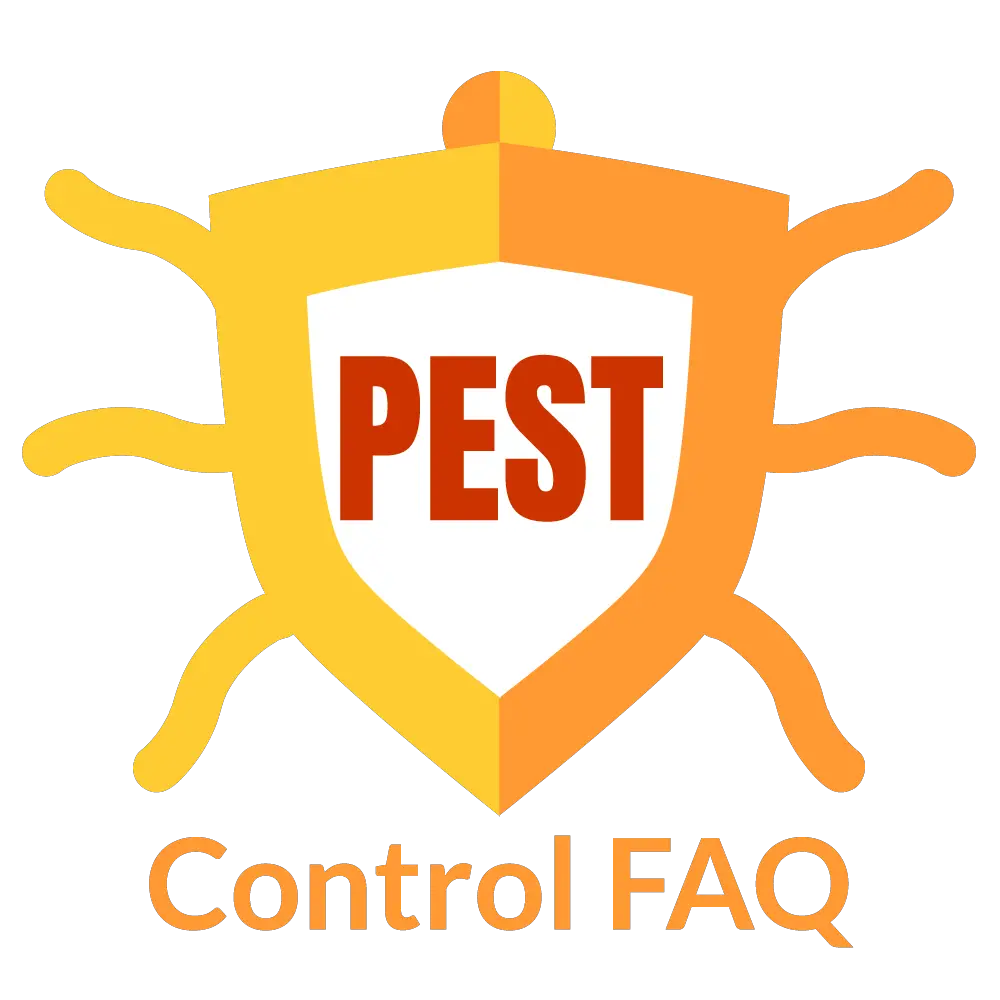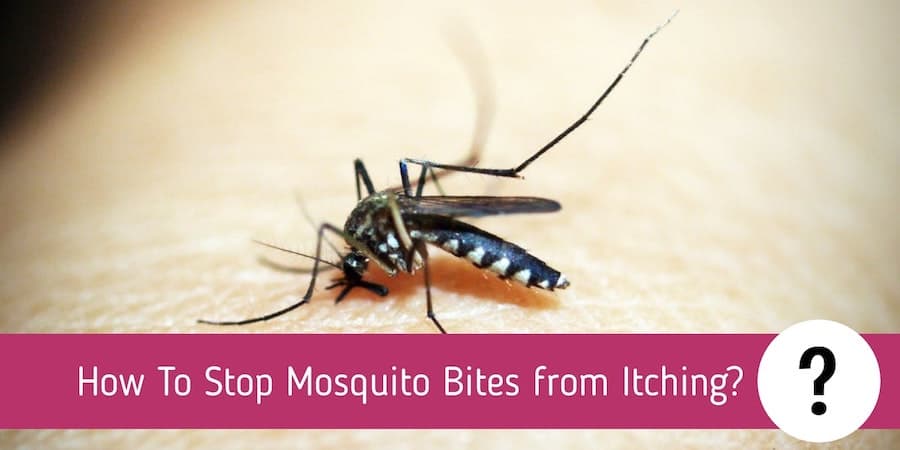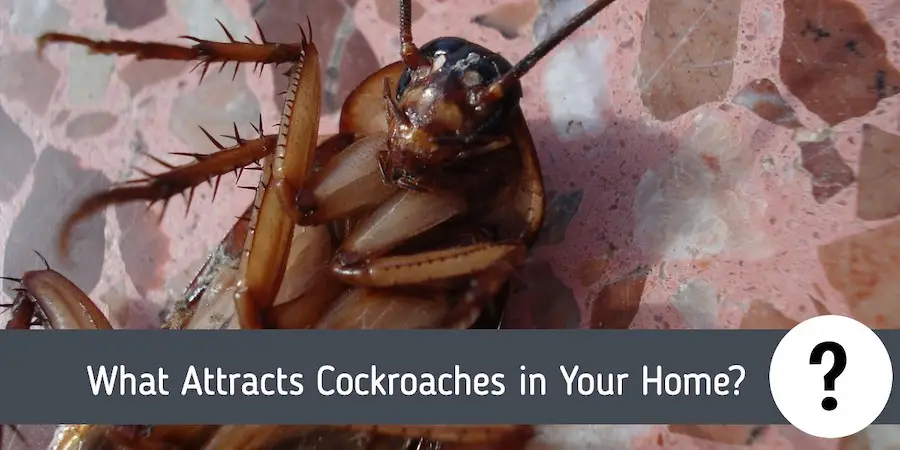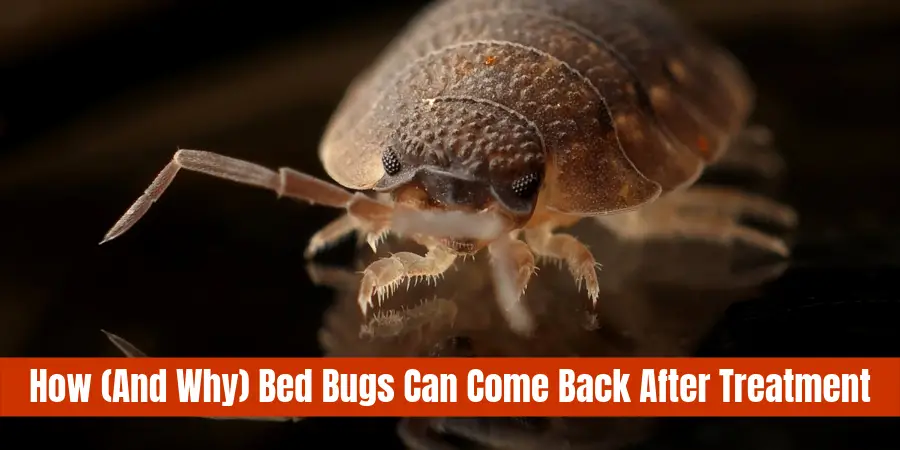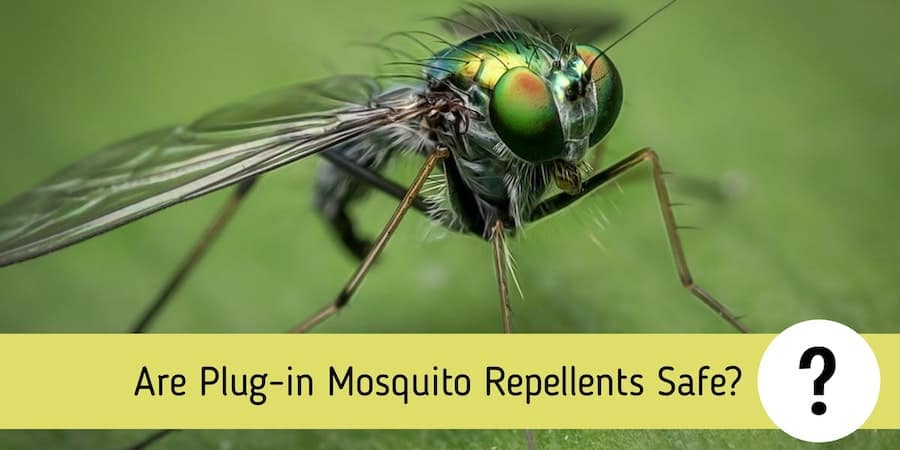Mosquitos are common pests in most parts of the world. They find their way indoors through open windows and doors and rest in dark, hidden areas until night, their chosen time to bite. Mosquito bites itch and may cause a rash from an allergic reaction to the mosquito’s saliva.
So, how do you stop mosquito bites from itching? First, you should not scratch a bite, as this will only make the itching worse. Instead, rub household alcohol on the bite to reduce swelling and prevent a possible allergic reaction. Apart from stopping the histamine reaction, alcohol also has a cooling, soothing effect.
There are many other ways you can stop mosquito bites from itching. In this article, you will learn more about mosquitos, how to stop them from biting and the many methods of stopping a mosquito bite from itching.
Table of Contents
Mosquitos Overview
Mosquitos have been in existence for more than 200 million years. They closely resemble true flies, Diptera. There are over 3500 mosquito species in the world, and more than 200 species are found in the United States.
Adult mosquitos have a narrow, oval shaped body measuring 1/4 to 3/8 inch. Most mosquitos are gray with a white abdomen with long legs and a sharp proboscis that they use to suck blood from humans and animals.
All mosquitos have a four-stage life cycle:
- egg
- larva
- pupa
- adult.
Female mosquitos can lay up to 300 eggs at a time. The eggs are usually deposited in clusters, known as rafts, on the surface of stagnant water or areas that flood regularly. Water helps the eggs to hatch into larva, which feed on organic matter in the stagnant water.
Mosquitos are coldblooded insects and can survive in temperatures over 80 degrees; when it is below 50 degrees, they hibernate. Some species of female mosquitos find holes and wait for the warmer weather, while others lay eggs in freezing water and die. The eggs do not hatch until the temperature rises.
Male mosquitos do not bite; only female mosquitos feed on the blood of people and animals. The female needs the protein in blood to enable her to develop eggs. Without it, eggs cannot mature to the point where the female mosquito can lay them for hatching.
How Long Do Mosquitos Live?
An average mosquito has a life of less than two months. Male mosquitos have a lifespan of 10 days or less while female mosquitos can live up to 8 weeks. Females species that hibernate during winter can live for up to 6 months.
Types of Mosquitos
The three most common mosquito species are the Culex, Anopheles and Aedes.
Culex Mosquitos
Culex mosquitos are also known as House mosquitos. They contain several species that are vectors of Rift Valley fever, Encephalitis, West Nile and many more. They are commonly found in major U.S. cities.
Culex mosquitos are weak fliers and tend to live for only a few weeks during the summer months. They attack after dusk or at dawn and their bite is very painful.
Anopheles Mosquitos
Anopheles mosquitos are also called Marsh mosquitos. There are about 460 different species of Anopheles mosquitos; the most prominent is the Anopheles gambiae.
Female Anopheles mosquitos are carriers of the parasite that cause malaria, a disease that kills millions of people globally. They bite both indoors and outdoors, between dusk and dawn and prefer human and mammal hosts.
Aedes Mosquitos
Aedes mosquitos are also referred to as Floodwater mosquitos, because flooding is important for their eggs to hatch. Aedes mosquitos have silver or bright white stripes on their abdomen, legs and thorax. Female Aedes mosquitos are a daytime feeder and can be an aggressive biter. Male Aedes mosquitos do not bite.
Aedes mosquitos were first discovered in the U.S. in 1985. They lay their eggs in clean, standing water. Unlike other mosquito species, Aedes mosquitos are strong fliers, capable of traveling up to 75 miles. They prefer biting mammals, especially humans, mainly in the early evening and at dawn.
The Importance of Mosquitos in the Ecosystem
Mosquito larvae are vital in aquatic ecology. Many small fish and insects feed on them and the loss of that food source would make their numbers decline. Anything that feeds on them, such as raptorial birds and game fish, would suffer.
Most mosquito-eating birds would have to switch to other insects. Mosquito larvae feed on waste products, making nutrients such as nitrogen available for plants. Thus, eliminating mosquitos might also have an effect on plant growth, too.
Signs of a Mosquito Infestation
As stated earlier, mosquitos can only survive in temperatures above 80 degrees. This means they are quite abundant in summer, and it is highly advisable that you check your home for an infestation during this time. Here are some of the common signs of a mosquito infestation.
Mosquito Bites
You will know you have a mosquito infestation when you and your household members are repeatedly bitten. Itchy welts may appear and can later develop into small, red bumps, which remain itchy for days or weeks.
Stagnant Water Buildup
The growth and survival of mosquitos also depend on the environment. They usually congregate around stagnant water, such as ponds, marshes, swamps and wetlands. In severe swarms, mosquitos can be seen hovering in the air.
High-pitched Whine
Mosquitos produce an annoying buzzing sound as they fly. This high-pitched whine may help you spot mosquitos, and it can be a good sign of a mosquito infestation.
Where are mosquitos usually found?
- Bird paths
- Flower pots
- Gutters and Downspouts
- Garbage cans after rain
- Garden decor
How to Prevent a Mosquito Infestation
Mosquitos are a nuisance. With their annoying buzzing sound and relentless search for blood, they can make your life, both indoors and outdoors, uncomfortable. Taking simple precautions can prevent a mosquito infestation.
Follow these tips to repel, control and prevent future mosquito problems.
How to Kill and Repel Mosquitos
Mosquito controls can be used to treat your yard and are an effective way of preventing a mosquito infestation. Use them to kill mosquitos in landscape beds and around the perimeter of your home. Spray your mosquito control on tree hollows, thick brush and other areas mosquitos hide.
Tip 1: Spray on Personal Repellents
If you are planning to be outdoors, remember that mosquitos are most active between dusk and dawn. During this time, spray an EPA-approved personal repellent specially made for humans. These sprays are highly effective and will help you repel and kill mosquitos.
Tip 2: Use a Mosquito Trap
Mosquito traps help keep mosquitos away. It is recommended that you change these traps regularly. If you are planning an outdoor event, mosquito traps can be a good way of protecting your guests from mosquito bites, especially if they are used together with other mosquito repellents and controls.
Tip 3: Light Mosquito Repellent Candles or Lanterns
These are ideal for small areas without a lot of ventilation. Mosquito repellent candles and lanterns contain one or more essential oils, such as peppermint, eucalyptus, lavender, cedar-wood, clove geraniol, lemongrass, rosemary and citronella. You can use mosquito lanterns and candles on your patio or porch to keep mosquitos away.
Tip 5: Use Garlic
Garlic is very effective when it comes to repelling mosquitos. It has a strong, pungent smell and mosquito larvicidal properties that make it quite effective in repelling mosquitos.
Crush a few garlic cloves and boil them in water for about 15 to 20 minutes. Wait for the water to cool and pour it in a spray bottle. Spray it around your room for mosquito prevention.
Tip 6: Chemical Plug-in repellents
Leading pesticide companies have developed plugins that contain Prallethrin to kill the mosquito. Prallethrin is a pyrethroid insecticide that is effective in killing mosquitos. This chemical has a low toxicity effect to mammals and is safe to use around babies, pets, and even pregnant women.
Tip 7: Other Safe Options for Repelling Mosquitos:
- Bed netting
- Eucalytpus oil
- Lavender
- Citronella
- Tea Tree Oil
Best Mosquito Repellents
How to Prevent a Future Mosquito Infestation
Eliminate Stagnant Waters
Nearly all mosquitos lay their eggs in stagnant water. Since it takes approximately 7 days for the eggs to hatch, eliminating stagnant water on your property can help to reduce the number of mosquitos in your backyard.
Make sure you get rid of water that has collected in old tires, garden pots, children’s toys and other outdoor items. In addition, ensure that your land has proper drainage and that all plumbing pipes are working properly.
Pour Coffee Grounds in Standing Water
Sprinkle coffee grounds in any standing water around your home, especially after a heavy rain. This forces mosquito eggs that may be present in the water to float to the surface, depriving them of oxygen. Without oxygen, they will die before they hatch, preventing new mosquitos from being born.
Plant Mosquito-Repelling Plants
Mosquito repelling plants contain fragrances and essential oils, such as marigold and lavender, that naturally repel mosquitos. If you love spending time outdoors – on your patio, deck, etc. – consider putting up a few of these plants around the perimeter to keep mosquitos at bay as well as add a little beauty to the setting.
Some examples of common mosquito-repelling plants include sage, basil, peppermint, ageratum, bee balm, catnip, rosemary, lemongrass and citronella.
Remove Debris
Some mosquito species lay their eggs in debris or damp soil. Thus, in addition to removing standing water, be sure to clear away any extraneous debris (e.g. leaves from gutters).
If the mosquito problem continues and you have a lot of shade in your yard, consider having your trees trimmed to increase the light to make your landscape less habitable to mosquitos.
Why Do Mosquito Bites Itch?
Female mosquitos have sharp mouthparts, formally known as proboscis, which they use to pierce human and animal skin and drink their blood. They need the protein in the blood to produce and lay viable eggs.
As the mosquito sucks blood, it also injects its saliva to prevent the blood from clotting, which disrupts the outflow. The human body reacts to the saliva by releasing a compound known as histamine.
Histamine promotes inflammation and summons wound-repairing white blood cells to the injury. This helps to fight the infection, but it causes the mosquito bite to swell and feel itchy.
Mosquito bites usually itch for a few days to a week. However, this largely depends on how the victim reacts to histamine. Scratching the itch can put the victim at risk for secondary bacterial infections or make the itching last even longer.
How Do You Stop Mosquito Bites From Itching?
Many people are allergic to mosquito bites and will get at least a bump that turns red. A small part of the population does not react to mosquito bites, while another small percentage will react severely to mosquito bites.
The first step to treating the itch is to refrain from scratching it (the typical reaction). No matter how tempting, do not scratch. Although scratching provides temporary relief, it exacerbates the itch, reopening the site and aggravating the initial bite.
Here are some of the common ways you can stop mosquito bites from itching.
Clinical Methods for Treating Mosquito Bites
Anti-Histamines
As we mentioned earlier, the release of histamines is what causes a mosquito bite reaction. This explains why anti-histamines – available at your local pharmacy, supermarket or big box store – are recommended for treatment.
Apply Anti-itch Creams
Applying medically approved hydrocortisone anti-itch creams, like Cortisol, can also help to stop a mosquito bite from itching.
Cortisol is a hormonal steroid that helps to stimulate anti-irritant/anti-inflammatory devices in your body, helping to ease the sensation of itching. An anti-inflammatory, such as ibuprofen, can also help.
Calamine Lotion
Calamine is a popular treatment for a mosquito bite. It contains a mixture of iron oxide and zinc oxide, which give it cooling and soothing properties. Calamine can help to reduce itching as well as to treat the bite. You may also want to try Caladryl, which contains calamine and an analgesic, which helps to relieve the sting.
Best mosquito anti-itch products
Home Remedies for Treating Mosquito Bites
If you do not want to run to the store or are looking for a more natural way of stopping the itch, here are some common home remedies.
Oatmeal Paste
Oatmeal is commonly used in face washes and lotions. It has compounds that help to reduce swelling and itchiness. The proteins in oatmeal help create a thin barrier that protects the skin from outside forces while the fats help to moisturize the skin.
To make an oatmeal paste, mix equal amounts of oatmeal and water in a bowl. Use a washcloth to hold the paste on the irritated area for about 10 to 15 minutes and then clean the area. If you have many mosquito stings, you may want to try an oatmeal bath instead.
Baking Soda Paste
Baking soda, also known as sodium bicarbonate, may provide relief from a mosquito bite. It is a good option, especially if you have multiple mosquito bites. You can use it in the same way as an oatmeal paste.
Mix 1 tablespoon of baking soda with just enough water to make a paste. Use a wash cloth to apply the paste on the irritated area for about 10 minutes before cleaning. Avoid this treatment if it causes more irritation to your skin.
Cold Compresses
A cold pack or a cube of ice may also help to stop the itching. The ice narrows blood vessels in the itchy spot, blocking blood to and from the area. If you choose to use this method, make sure you hold the ice on the bite for not more than 15 minutes, as any longer could result in frostbite.
Aloe Vera
Aloe Vera is a plant that has numerous health benefits. The gel found in Aloe Vera has anti-inflammatory properties and can help calm infections as well as heal minor wounds. That is why it’s so effective in stopping mosquito bites from itching. Cut open a small section of the Aloe Vera plant, apply the gel to the irritated area and let dry.
Honey
In addition to being delicious, honey can help to stop itching from mosquito bites while helping to prevent infection. Honey is commonly used as a natural antibiotic throughout the world. It has been used to treat chapped lips, dry skin and skin burns. For itch relief, apply a dab of honey to the mosquito bite.
Rubbing Alcohol
Immediately after the mosquito bites you, clean the area with rubbing (household) alcohol. The mixture comes in a 90% solution, which is sufficient to clean the bite. When rubbing alcohol dries, it cools the spot which helps to relieve the itching.
Apple Cider Vinegar
Apple cider vinegar is used in many parts of the world to treat a wide range of medical conditions, including blood sugar problems and infections. If you have an itchy mosquito bite, apply vinegar using a cotton ball or cotton swab. Vinegar helps to reduce the stinging as well as the burning sensation. It also helps to disinfect the sting if you have been scratching too much.
Basil
Basil is commonly used in many Italian recipes, but it is also an effective mosquito remedy. Research shows that basil contains a chemical called Eugenol that helps to relieve itchy skin. Mix dry basil leaves with water, and then use a washcloth to rub the mixture on your mosquito bite(s).
Final thoughts: How To Stop Mosquito Bites from Itching?
There are many ways to relieve the itch of a mosquito bite. The method you choose will largely depend on the level of your body’s reaction towards the bite. Some home remedies may be more effective than others, and it is important you choose the one that works best for you.
You can also use over-the-counter pain relievers, topical anti-itch medication or antihistamines to relieve the pain and the itching. If your child has an itchy mosquito bite, make sure his/her fingernails are short and remind them not to scratch the itchy spots.
Related Questions
What Diseases Can Mosquitos Carry? Mosquitos can carry parasites, bacteria and viruses in their saliva. They transmit these pathogens into your body, causing serious illnesses, such as yellow fever, Dengue fever, West Nile Virus, Malaria and, possibly, Encephalitis. (full article here)
Can we get AIDS or HIV from mosquito bites? No, you can’t. Not all diseases can be transmitted by a mosquito bite; for example, HIV is not contracted from a mosquito bite.
Can a Mosquito Bite More than One Time? Yes, female mosquitos will suck blood out of humans until they are fully satisfied. If she gets interrupted, she will move on to the next victim. Once she is fully sated, she hibernates for several days and then lays her eggs.
Why Do Mosquitos Seem to Bite Some People More than Others? Mosquitos are attracted to large amounts of carbon dioxide and heat. They also prefer the scent of bacteria from drying sweat, lactic acid, cholesterol, perfumes, shampoos and colognes. Some people, more than others, produce certain chemicals in their skin. There is also evidence that people with blood type (O) attract mosquitos more than others.
Do Ultrasonic mosquito repellents work? These devices claim that high-frequency sound repels insects and rodents. But based on hundreds of unhappy customers, buying these plugins to get rid of mosquitos and other pests would be a complete waste of money.
